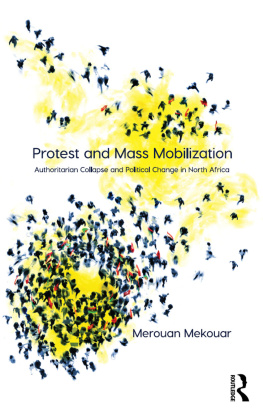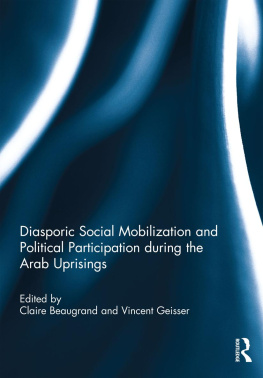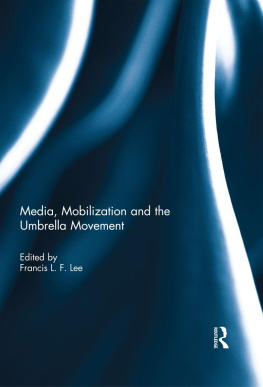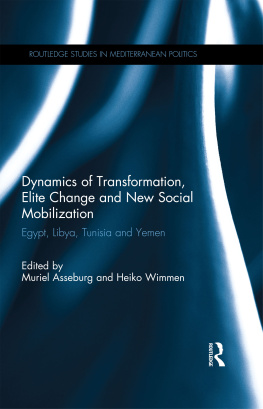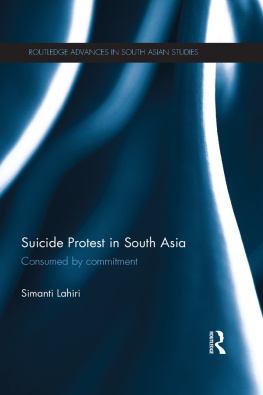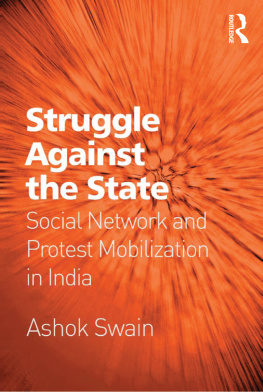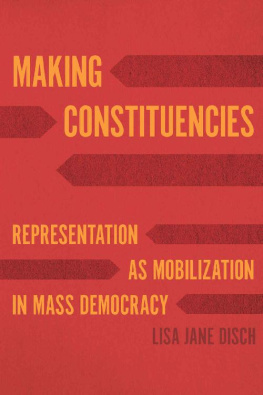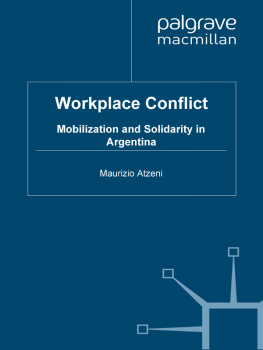PROTEST AND MASS MOBILIZATION
Why and how do some acts of protest trigger mass mobilization while others do not? Using the cases of Morocco, Algeria, Tunisia, and Libya, Mekouar argues that successful mass mobilization is the result of a surprise factor, whose impact and exceptionality is amplified by the presence of influential political agents during the early phase of protest, as well as by regime violence and unusual media coverage. Together this study argues that these factors create a perception of exceptionality, which breaks the locally available cognitive heuristic originally in favor of the regime, and thus creates the necessary conditions for mobilization to occur. This book provides a unique dialectical picture of mobilization in North Africa by focusing both on the perspective of those who mobilized against their local regimes and members of the security forces who were responsible for stopping them. Moreover, it offers a first hand account of the tumultuous days preceding authoritarian collapse and explains the mechanisms through which political change occurs.
Merouan Mekouar is a political scientist and professor of International Development Studies at York University and a senior fellow at the inter-university consortium of Arab and Middle Eastern Studies at McGill University. He works on social movements and authoritarian collapse in North Africa and the Middle East.
Protest and Mass Mobilization
Authoritarian Collapse and Political Change in North Africa
MEROUAN MEKOUAR
First published 2016
by Routledge
2 Park Square, Milton Park, Abingdon, Oxon OX14 4RN
and by Routledge
711 Third Avenue, New York, NY 10017
Routledge is an imprint of the Taylor & Francis Group, an informa business
2016 Merouan Mekouar
The right of Merouan Mekouar to be identified as author of this work has been asserted by him in accordance with sections 77 and 78 of the Copyright, Designs and Patents Act 1988.
All rights reserved. No part of this book may be reprinted or reproduced or utilised in any form or by any electronic, mechanical, or other means, now known or hereafter invented, including photocopying and recording, or in any information storage or retrieval system, without permission in writing from the publishers.
Trademark notice: Product or corporate names may be trademarks or registered trademarks, and are used only for identification and explanation without intent to infringe.
British Library Cataloguing in Publication Data
A catalogue record for this book is available from the British Library
Library of Congress Cataloging-in-Publication Data
Mekouar, Merouan, author.
Protest and mass mobilization : authoritarian collapse and political change in North Africa / by Merouan Mekouar.
Includes bibliographical references and index.
ISBN 9781472459305 (hardback) ISBN 9781472459312 (ebook) ISBN 9781472459329 (epub) 1. LCSH: Arab Spring, 2010 2. Protest movementsTunisiaHistory21st century. 3. Protest movementsLibyaHistory21st century. 4. Protest movementsAlgeriaHistory21st century. 4. Protest movementsMoroccoHistory21st century. 5. TunisiaPolitics and government21st century. 6. LibyaPolitics and government21st century. 7. AlgeriaPolitics and government21st century. 8. MoroccoPolitics and government21st century.
JQ1850.A91 M484 2016
909/.097492708312dc23
2015034305
ISBN: 9781472459305 (hbk)
ISBN: 9781315602707 (ebk)
Typeset in Times New Roman
by Apex CoVantage, LLC
Contents
This study would have never seen the light of day without the support of a great number of colleagues, teachers, mentors and friends whose guidance and generosity were absolutely central to the completion of this work.
In Tunis, I would like to express all my gratitude to Laryssa Chomiak and Riadh Saadaoui of the Centre dtudes Maghrbines Tunis. I could not have hoped for a better entry point in Tunisia. I would also like to thank my friend Walid Gouadria, who welcomed me so generously in Sidi Bouzid. Thanks to his unwavering support, I was able to reach all those I needed to interview for my research and beyond. In Oran, I would like to thank Bob Parks and the Centre dtudes Magrbines for welcoming me so generously, Yamina Rahou and Belkacem Benzenine of the Centre de Recherche en Anthropologie Sociale et Culturelle, Babadji Messaoud, Kamel Daoud, as well as Pascale and Mohammed Halim of the French Institute. Their hospitality in Oran made a world of difference. In Morocco, I would like to thank my friends and family, who did all they could to make my fieldwork as rewarding as possible. In particular, I would like to extend my heartfelt thanks to Rima Salhi, whose extended network of friends helped me reach many of my interviewees, as well as Samia Bzioui, Rim Benali and Khawla Ezzine for putting me in touch with everyone else.
In Canada, I am especially indebted to Rex Brynen, Khalid Medani and Eric Kuhonta, whose precious theoretical insight shaped the most valuable aspects of this work. I would also like to thank Sana Saeed and Danika Goshulak for editing an earlier version of this text, Leslie Plumb for designing the cover of this book, Giulia El Dardiry for providing me with thorough analytical feedback throughout the writing process, as well as my colleagues from the Interunivesity Consortium for Arab and Middle Eastern Studies at McGill University. Their support and friendship meant a great deal to me before and after this study was completed. I would also like to thank the Department of Political Science and the Faculty of Arts at McGill University, who funded the first part of this research in 2011 and 2012, as well as the Department of Social Sciences at York University for funding the second part in 2014.
A preliminary version of the argument examined in this study was published in the International Studies Review in 2014. I would like to thank Etel Solingen, Arthur Stein, Jahn Detlef and Thomas Risse for their judicious comments and criticisms, as well as the Kolleg-Forschergruppe (KFG) The Transformative Power of Europe for inviting me to present in Frankfurt and Berlin.
Finally, I would like to say no thanks at all to the man with bad teeth who ran away with my phone in a road-blockade north of Gafsa, the carpet vendor in Kairouan who pretended to be diabetic and whose carpet I am still trying to like and the Algerian policeman who pretends to like Moroccans.
This book is dedicated to my parents and to my partner Teresa with much gratitude for everything they have given me.
AMDH | Association Marocaine des Droits de lHomme (Moroccan Association of Human Rights) |
CLA | Conseil des Lyes dAlger (Algiers Lyes Council) |
CNAPEST | Conseil National Autonome des Travailleurs de lEnseignement Secondaire et Technique (National Autonomous Council of Secondary and Technical Teaching Workers) |
CNCD | Coordination National pour le Changement et la Dmocratie (National Coordination for Change and Democracy) |
FLN | Front de Libration National (National Liberation Front) |
FFS | Front des Forces Socialistes (Socialist Forces Front) |
LADH | Ligue Algerienne des Droits de lHomme (Algerian League for Human Rights) |

